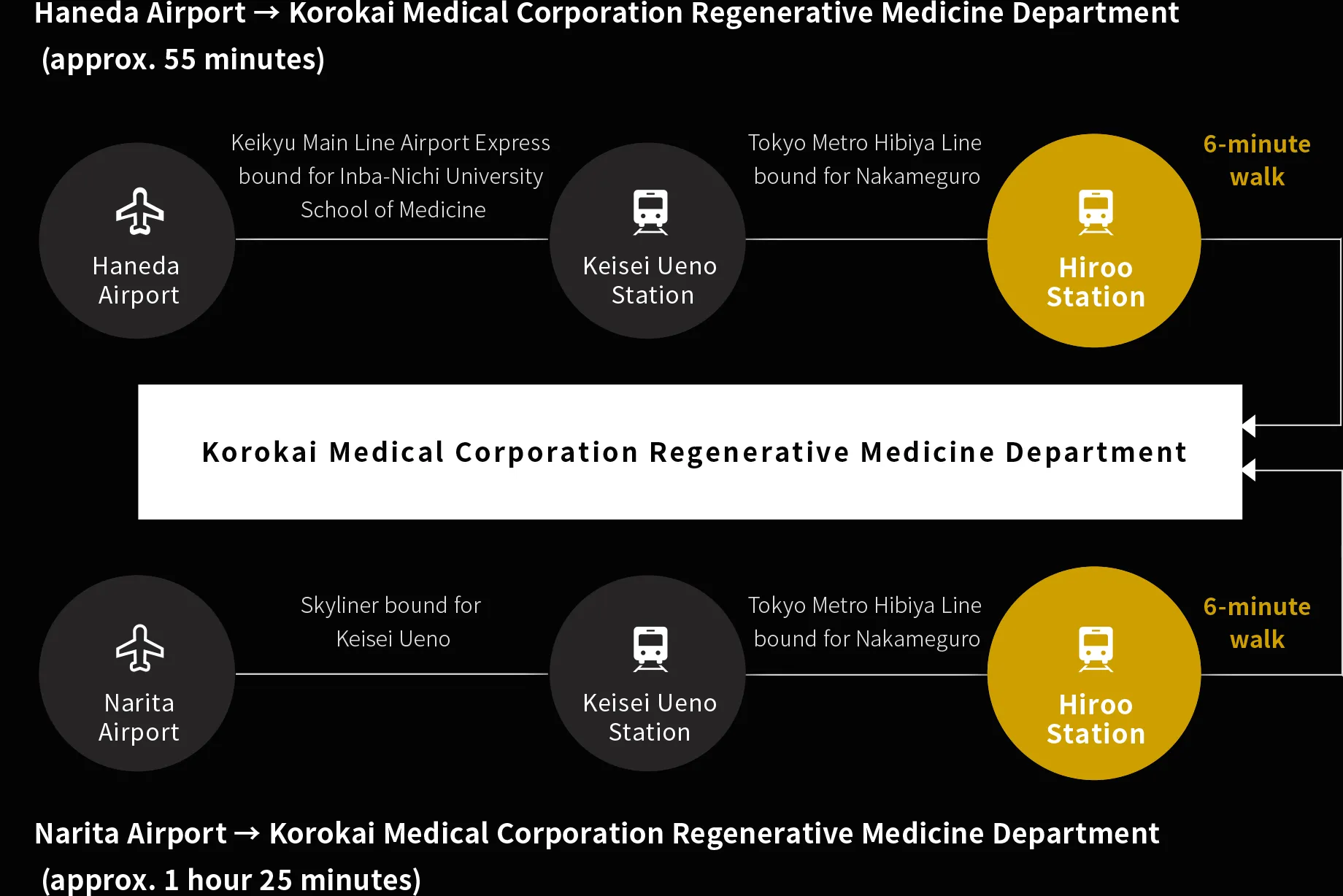About us
At the regenerative medicine department of Korokai Medical Corporation, we carefully select evidence-based treatments and provide cutting-edge regenerative medicine tailored to each individual's concerns with a comprehensive new treatment policy that is not bound by conventional medical practices.
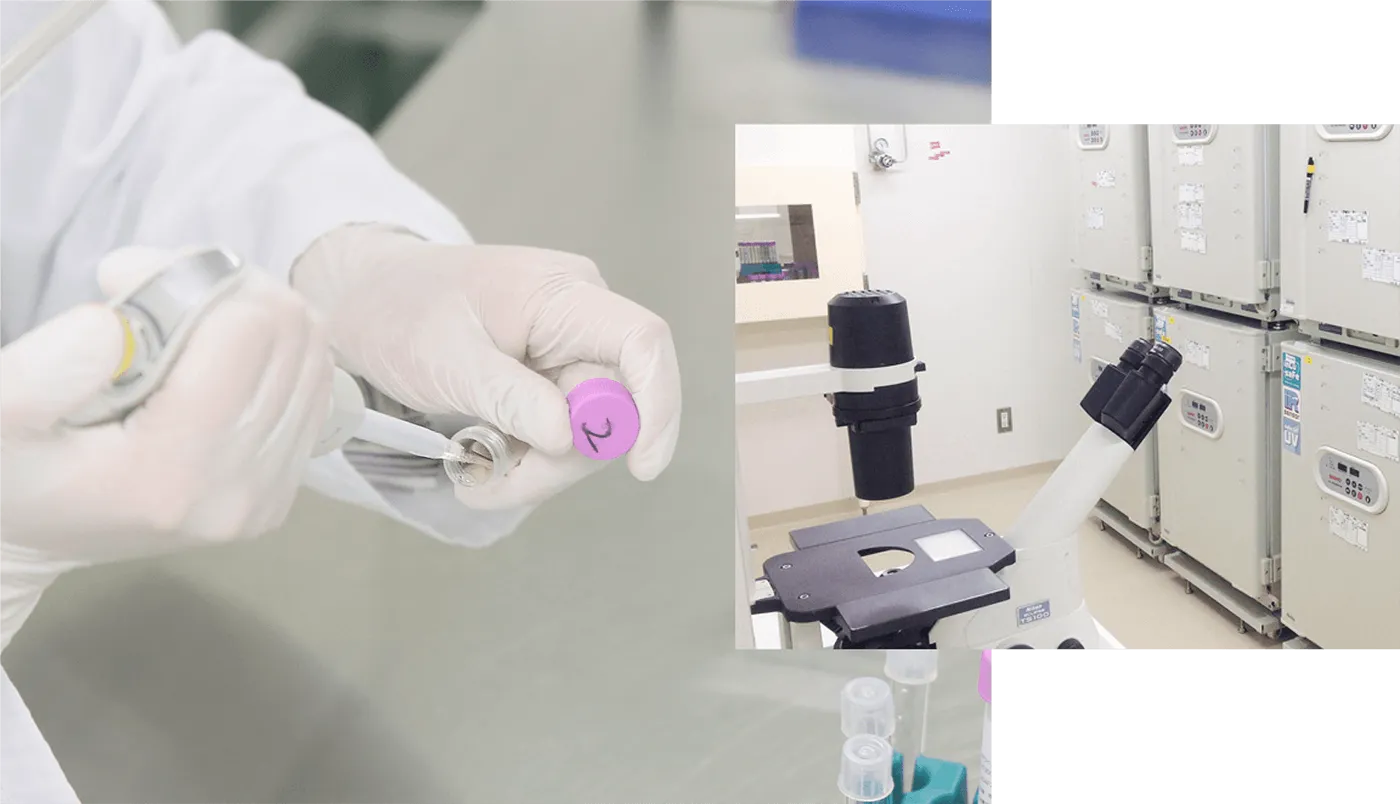
The Regenerative Medicine Department of Korokai Medical Corporation is a medical institution that has acquired the Type 2 Regenerative Medicine certification, provision plan numbers;
PB3210146
PB3230187
PB3240017
PB3230218
In stem cell therapy, the patient's adipose tissue is collected and the stem cells are cultured. This is a treatment in which cultured stem cells are administered into the body via an intravenous drip, etc., to regenerate the body's functions and dramatically improve biological functions. Stem cells have the ability to self-renew and differentiate, and by replicating and differentiating into various types of cells, there is a high expectation that they will restore the body's functions. It also has a function called homing, which works on damaged areas in the body and repairs them. Stem cells secrete numerous growth factors and growth factors, and their paracrine effects are expected to suppress inflammation in various parts of the body, suppress pain, and optimise the body.
Regenerative medicine using stem cells is rigorously examined by the Specified Certified Regenerative Medicine Committee recognized by the Ministry of Health, Labor and Welfare for its validity, safety, physician system, and cell processing management system. If the above is deemed appropriate, a treatment plan can be submitted to the Ministry of Health, Labor and Welfare, and regenerative medicine treatment will be permitted for the first time.
| Characteristics of stem cells |
① Self-renewal ability: Stem cells have the ability to generate cells identical to themselves through division. ② Differentiation ability: Stem cells have the ability to change into various cells different from themselves. Differentiates into various cells such as bones, blood vessels, skin, nerves, etc. ③Homing: It has the ability to work on and repair damaged areas in the body. ④ Paracrine action: Growth factors suppress inflammation in various parts of the body, suppress pain, and contribute to optimization within the body through paracrine action |
|---|---|
| Target symptoms |
Cerebral infarction, spinal cord injury, peripheral neuropathy, chronic pain, knee arthropathy Arthritis, atopic dermatitis, myocardial infarction, angina pectoris, arteriosclerosis Diabetes, chronic kidney disease, chronic obstructive pulmonary disease Autoimmune diseases (rheumatoid arthritis, systemic lupus erythematosus, etc.) Female menopause, male menopause Anti-aging medical care (regeneration of skin, blood vessels, etc.) Aftereffects of new coronavirus infection |
| Main effects of stem cells |
- Expected to regenerate and repair damaged cells and organs ・Prevention of chronic pain symptoms ・Improvement of physical performance ・Expected to have effects on health promotion and beauty |
Treatment items
stem cell therapy
Stem cell therapy is a treatment method in which adipose tissue-derived stem cells from a patient receiving treatment are collected, cultured, and the patient's own stem cells are administered via Intra articular injection or intravenous drip, and returned to the body to regenerate the body's functions. It is expected to repair and regenerate damaged tissues, and can be expected to improve health and beauty conditions caused by ageing.
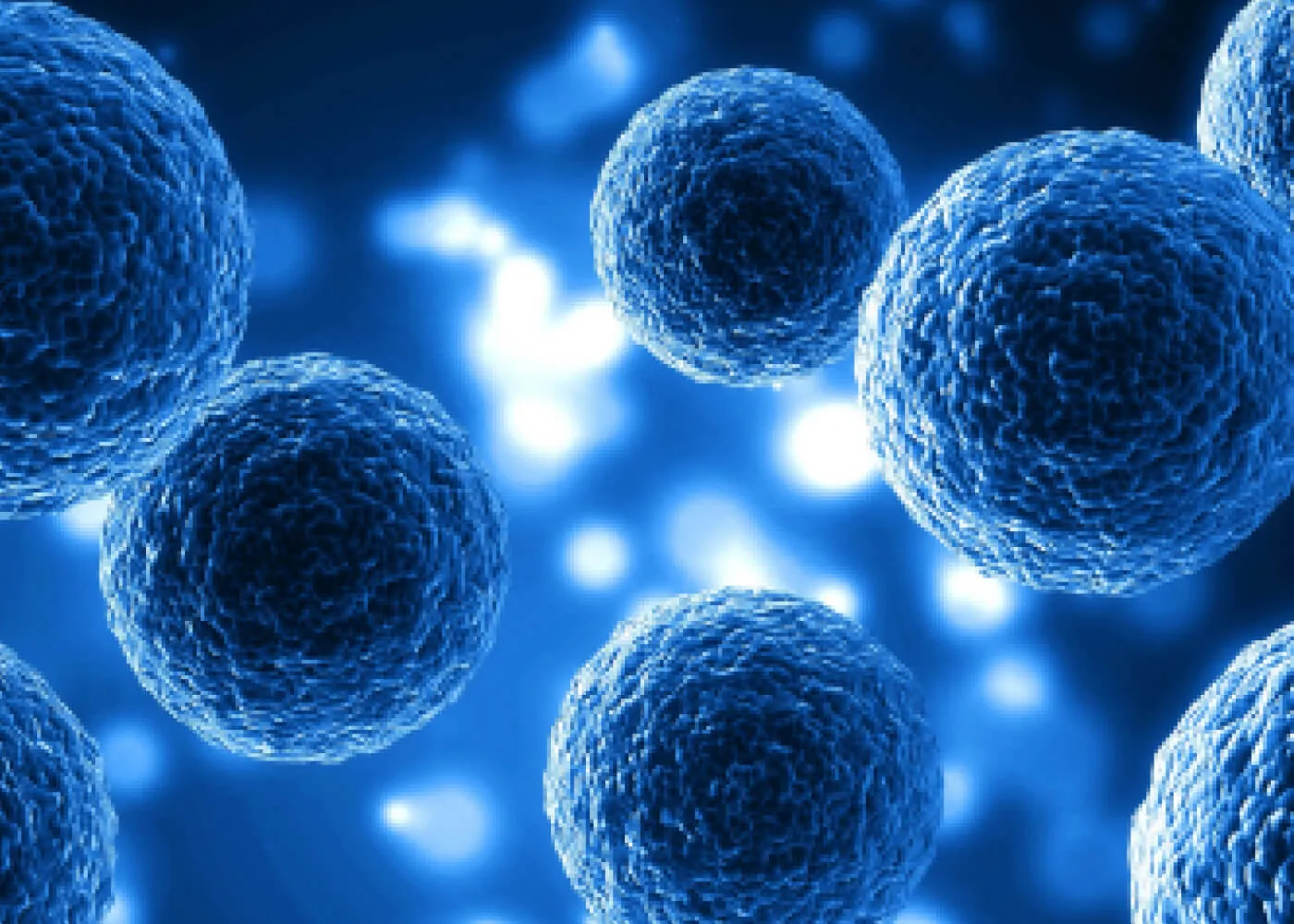
NK cell therapy
Natural killer (NK) cells are lymphocytes that find and attack cancer cells, virus-infected cells, etc. in the body. It plays an important role in innate immunity, which is the body's natural defence mechanism. In NK cell therapy, NK cells extracted from the patient's blood are cultured, multiplied, strengthened to attack cancer cells and viruses, and then returned to the patient's body via an intravenous drip.
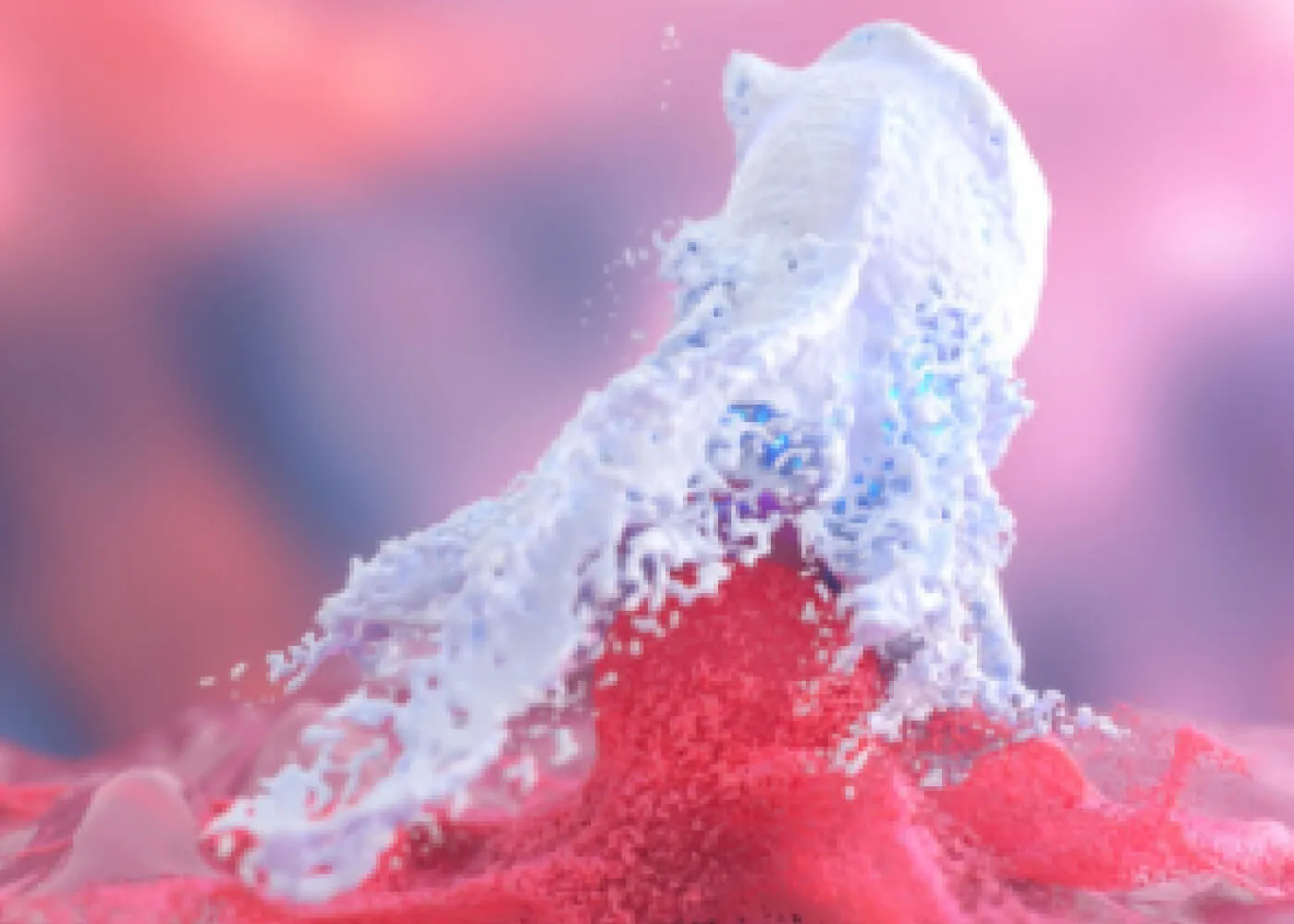
Exosome therapy
Exosomes are endoplasmic reticulum made of lipid bilayer membranes secreted from cells. It is said to play an important role in transmitting information between cells and between organs in the human body, and has been confirmed to be secreted from all cells. Exosomes secreted from mesenchymal stem cells secrete various growth factors and exert anti-inflammatory and antioxidant effects. It is also expected to suppress ageing, prevent disease, and improve menopause in men and women.
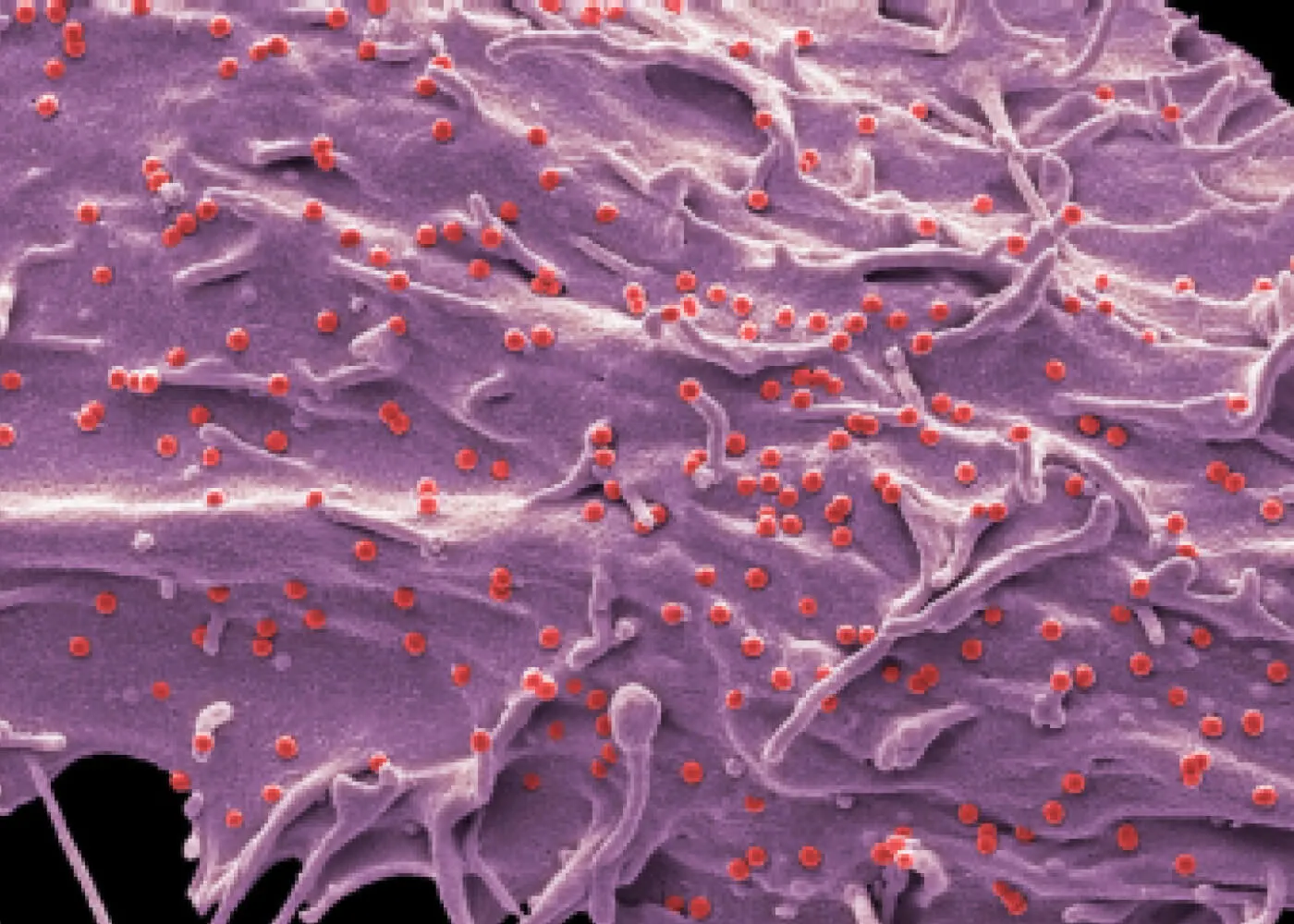
SVF therapy
By locally injecting stem cells extracted from the patient's own fat, there is hope for anti-inflammatory, antioxidant, and regenerative effects. When injected into the face and scalp, it exerts a regenerative effect. You can receive stem cell treatment in a short time after fat collection.
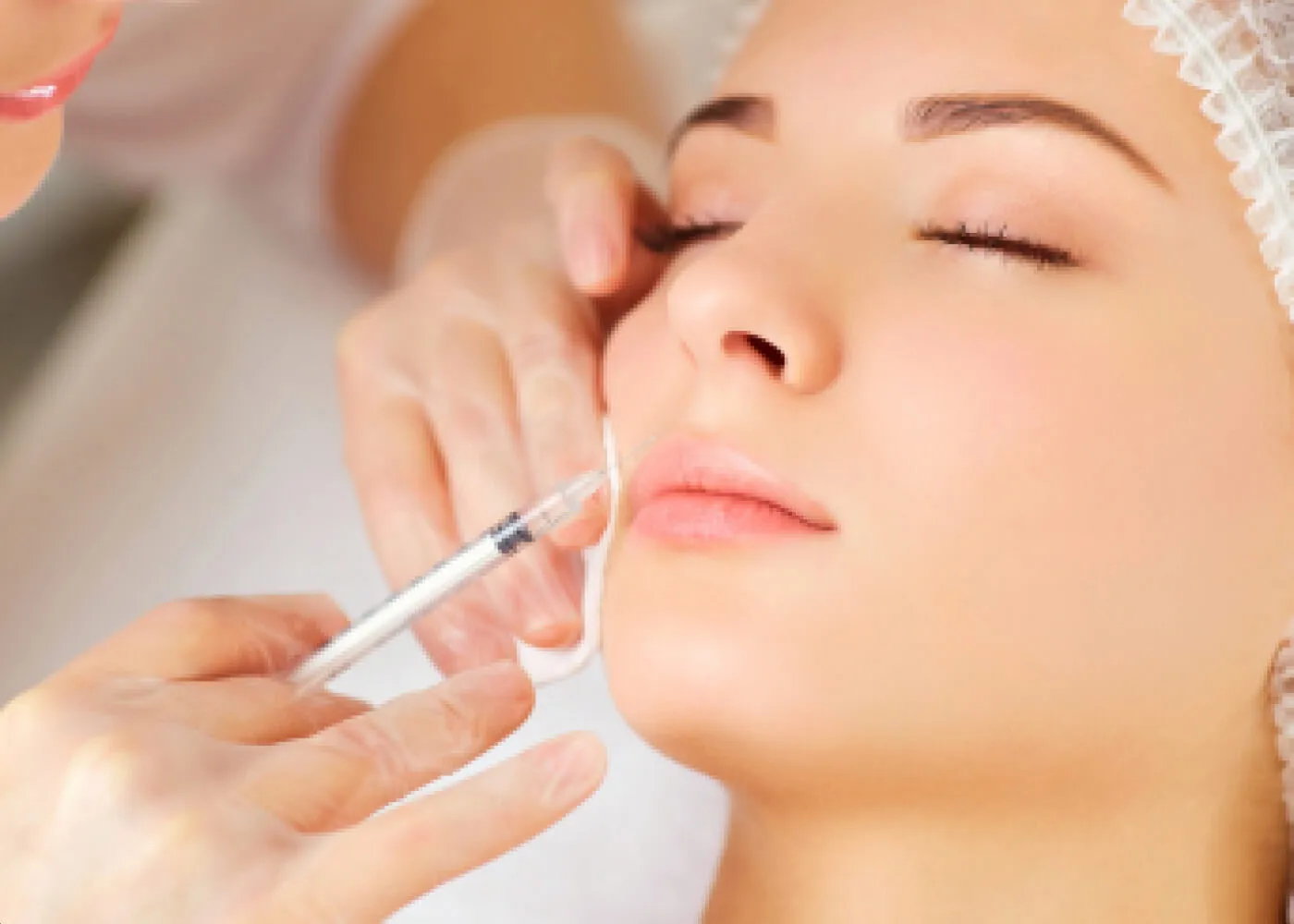
immune cells
T cells and B cells are cells that play important roles in the immune system.
T cells play a central role in cellular immunity, identifying and attacking foreign substances and abnormal cells. CD4-positive T cells (helper T cells) activate other immune cells, and CD8-positive T cells (cytotoxic T cells) directly attack infected cells. T cells control immune responses and regulate autoimmune responses.
On the other hand, B cells play a central role in humoral immunity and produce antibodies specific to foreign substances. Through infection or vaccination, the immune system learns immune responses to foreign substances and forms long-term immune memory. Activated B cells differentiate into plasma cells and produce large amounts of antibodies to neutralise foreign substances. T cells and B cells make up the complex network of the immune system and provide an appropriate immune response to foreign substances.
Flow of treatment
① Counselling
First, we carefully listen to the patient's wishes and assess the patient's condition. The doctor will then explain the purpose, treatment details, safety, etc. of regenerative medicine.
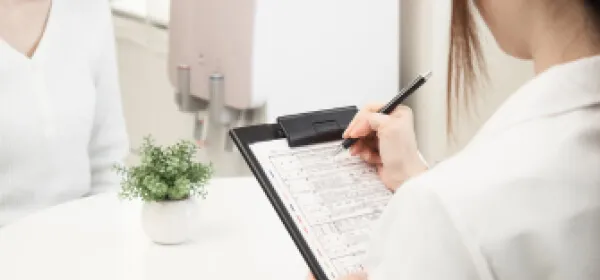
② Preliminary blood test (infectious disease test)
After obtaining consent from the patient, we will draw blood and conduct tests. When blood is drawn, various tests are performed to check for infectious diseases such as viruses.
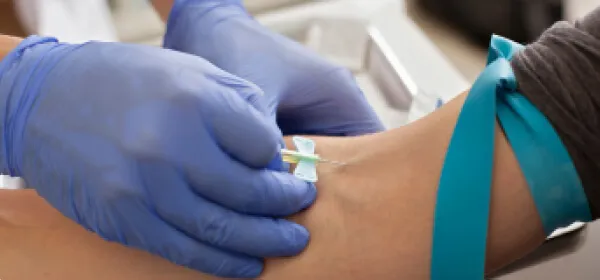
③ Collect fat
A small amount of adipose tissue is collected from the subcutaneous fat of the desired area. Because the fat is harvested through a small incision, the scar is hardly noticeable.
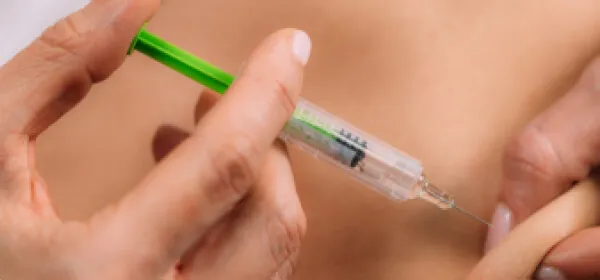
④ Stem cell culture
The collected fat is immediately sent to the cell culture processing facility provided by our hospital and culture begins. Cell culture and processing are performed in a clean room under strict positive pressure control.
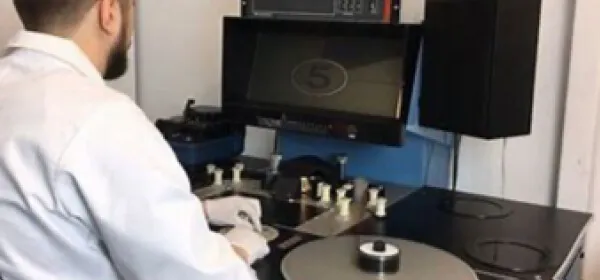
⑤ Administration
Stem cells cultured for 4 weeks are administered via infusion. The stem cells are administered intravenously over a period of approximately 1 hour. For local injections to the face, the injection will be given to the entire face.
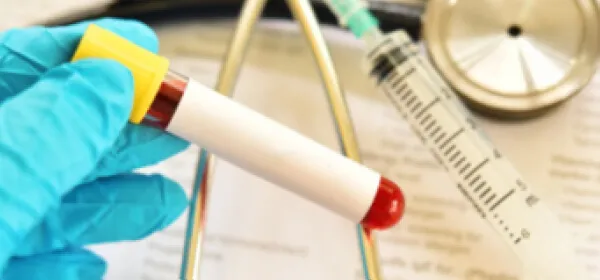
⑥ After-care follow-up
After administering cultured stem cells, regular checkups are performed to check for changes in condition. Based on the results, we will support you with advice or future care.
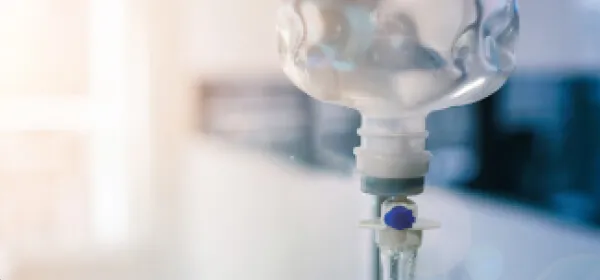
About our hospital
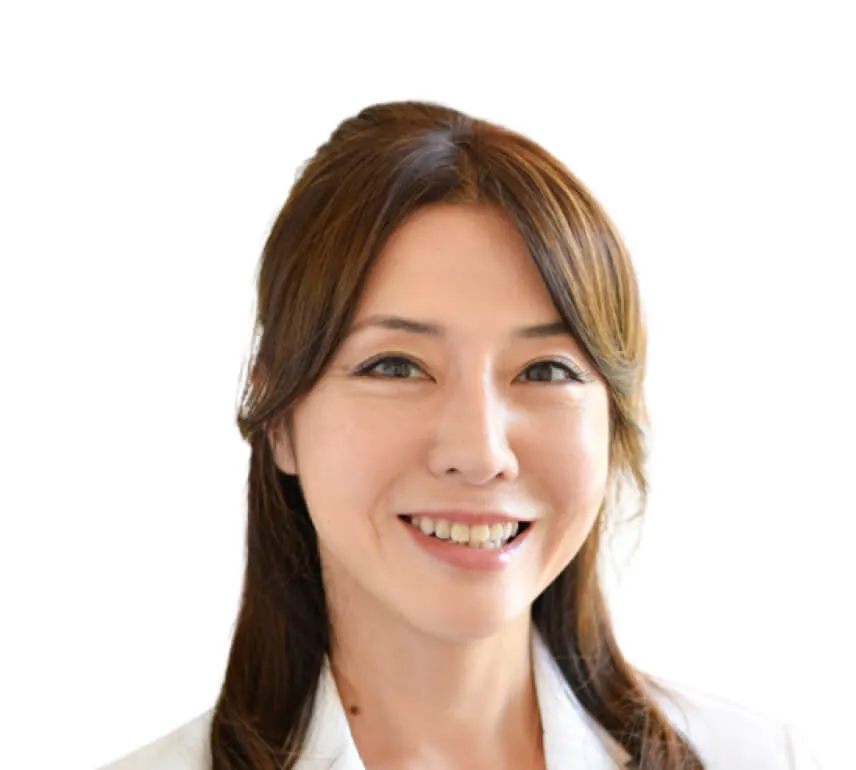
Director
Chiaki Kawashima
Dr. Chiaki Kawashima, a graduate of Tokyo Medical University, established Department of Regenerative Medicine, Korokai Medical Corporation in 2002 and has been involved in the treatment of numerous patients both domestically and internationally. She actively participates in domestic and international conferences such as the American Academy of Dermatology, Laser Society, and Anti-Aging Society, incorporating the latest treatment techniques. As a certified peptide and hormone therapy specialist, she is highly regarded by many patients seeking anti-aging treatments from within the body.
She is a member of the Japanese Dermatological Association, the Japanese Society of Aesthetic Dermatology, the Japanese Society of Plastic Surgery, and the Japanese Society of Anti-Aging Medicine. She is also certified as a peptide specialist by the American Academy of Anti-Aging Medicine, a hyaluronic acid injection instructor by Galderma, and a certified practitioner of Thermage and Doublo treatments.
Korokai Medical Corporation Regenerative Medicine Division
Address: 5th floor, Precious 18, 4-14-6 Minami-Azabu, Minato-ku, Tokyo 106-0047
Phone: 03-6277-4650
Access: About 6 minutes walk from Exit 1 of Hiroo Station on the Tokyo Metro Hibiya Line
Medical hours:
Wednesday to Sunday 10:00 AM - 7:00 PM
Closed days: Mondays and Tuesdays
*Reservations are required.
*English available

